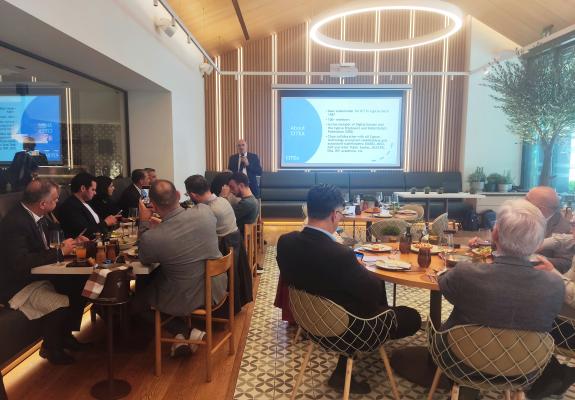A New Perspective on the Workforce: The Optimism of the Young Generation
PwC's recent Global Workforce Expectations and Concerns Survey reveals that the younger workforce remains hopeful about the evolving job landscape.
A significant proportion of Gen Z employees, roughly 3 out of 5, trust their employers to provide them with key skills such as analytical abilities, critical thinking, and teamwork. However, there's a noticeable disparity between those possessing specialized expertise and those without.
Adopting a skills-centric approach could be instrumental in equipping both budding professionals and enterprises to navigate the dynamic professional world.
Recent years have seen the young generation grappling with challenges, from health crises like the pandemic to global issues like climate change and geopolitical unrest. As they step into the professional realm, they might feel the odds are stacked against them. Yet, data from our expansive Global Workforce Expectations and Concerns Survey, encompassing nearly 54,000 participants across 46 regions, indicates a prevailing sense of hope among them, especially regarding skill acquisition and learning.
For industry leaders, policymakers, and societal institutions, the focus should be on ensuring this optimism is well-founded and that skill-building opportunities are fairly distributed.

The dynamic between employees and their organizations is at the heart of this optimism. Most of Gen Z respondents (those aged 18-26 in the study) are confident in their employers' commitment to their skills development. To illustrate, more than 60% of them expect their companies to aid in honing their analytical, teamwork, and critical thinking capabilities. These percentages are notably higher compared to their Baby Boomer counterparts.
When it comes to the impact of Artificial Intelligence (AI) - expected to be integrated by three-quarters of all businesses - the outlook gets intricate. While half of the surveyed businesses foresee AI as a job creator, a quarter predict it will lead to job cuts.
It's only natural for those fresh out of school to be apprehensive. The study indeed revealed a higher percentage of Gen Z individuals (17%) fearing AI might take over their jobs within half a decade, in contrast to a mere 8% of Baby Boomers. Yet, Gen Z's worry is coupled with a hopeful stance. They believe in the potential of AI to unveil new career avenues and skill-building opportunities, showing their readiness to adapt.
But beneath this overarching optimism lies a disparity within Gen Z. Those equipped with specialized training are much more proactive in seeking skill development opportunities (71%) than those without such training (45%).
This discrepancy is a potential alarm bell, indicating a widening chasm between skilled and unskilled workers' future prospects. Given the evolving business landscape, where a significant chunk of CEOs believe in the necessity for transformation, it's crucial that the entire workforce is prepared and motivated to champion this change.
The onus now lies on corporations, governing bodies, and educators to capitalize on the zeal of the younger workforce. They should strive to ensure that everyone can embark on their personal skill-development journey. A revolutionary approach might be the adoption of a 'skills-first' paradigm, prioritizing an individual's abilities over their academic or professional past. Both Gen Z and Millennials feel that employers often overemphasize past roles over current competencies. Addressing this could not only benefit the youth but also unearth hidden talents across all age groups.
In an era marked by swift technological advancements and AI-driven changes, stakeholders that arm the youth with the requisite skills will not only be aiding them but also positioning themselves advantageously.






